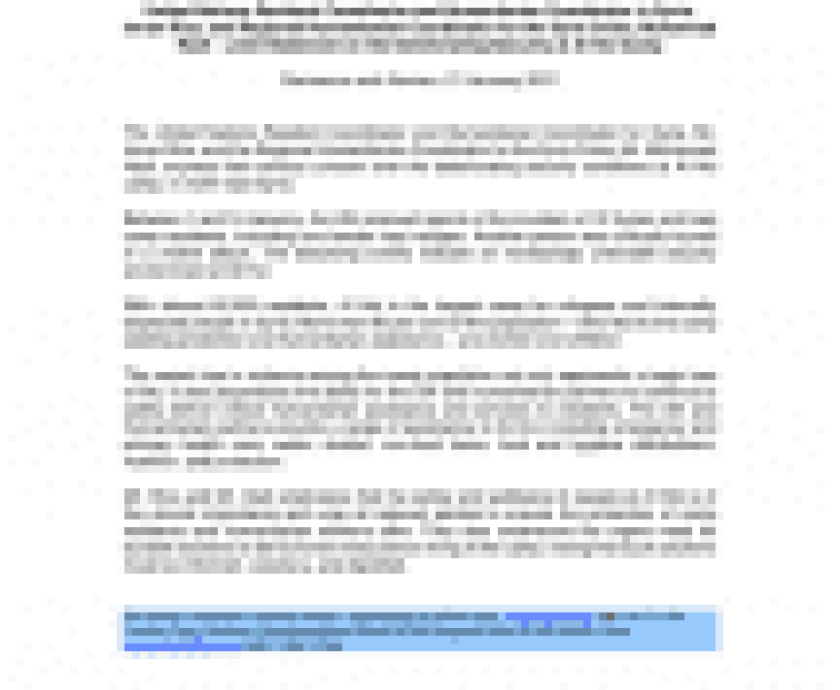Click to expand Image
Migrants who were intercepted by Libyan authorities on a boat off the coast are held ahead of their transfer to a detention centre in Surman, Libya on May 12, 2022.
© 2022 Mahmud Turkia/AFP via Getty Images
In its obsession to keep migrants and asylum seekers away from its shores, Italy is paying for tens of thousands of people to be intercepted and returned to Libya, where they face abuses that the UN describes as possible crimes against humanity.
Italy’s Memorandum of Understanding on Migration with Libya will be automatically renewed on February 2 for three years, after the November 22 date for making changes passed.
Since it was signed in 2017, the financial and technical support Italy provides to Libyan authorities has been key in facilitating the interception of thousands of people crossing the Mediterranean Sea to reach Italy, forcing them back to Libya. There, migrants faced “murder, enforced disappearance, torture, enslavement, sexual violence, rape, and other inhumane acts … in connection with their arbitrary detention”, according to a June 2022 report by the UN Independent Fact-Finding Mission on Libya.
In September 2022, the Prosecutor of the International Criminal Court (ICC) said in a statement that according to his office’s preliminary assessment, crimes against migrants in Libya “may constitute crimes against humanity and war crimes.”
Yet the Italian government keeps providing significant support to Libyan authorities despite these findings, countless reports by international human rights organisations, and repeated recommendations to suspend assistance, including by the UN Secretary-General, the Council of Europe’s Commissioner for Human Rights, and Italian civil society. On January 28, 2023, Italian Prime Minister Meloni visited Libya to sign a major gas deal with the country and declared that Italy will provide the Libyan Coast Guard with five “fully equipped boats”.
The European Union has allocated €57.2million for “Integrated Border and Migration Management in Libya” since 2017, and announced plans in November 2022 to further increase support to Libya. Its border agency Frontex also provides surveillance information used by Libya to intercept migrants.
Assisting Libya’s coast guard, knowing that it will facilitate the return of thousands of people to serious human rights violations, makes Italy and the European Union complicit in such crimes.
Efforts to provide legal pathways out of Libya are little more than a fig leaf, with only around 9,000 refugees evacuated to safety by the United Nations High Commissioner for Refugees (UNHCR) through an emergency mechanism since 2017. They certainly do not absolve Italy and other EU member states from their responsibility for the return of around 108,000 people to abuse in Libya since 2017, and for the deaths of migrants at sea or in detention by the hands of Libyan authorities.
Italy and the EU should suspend this support to Libya, and ensure any future assistance is conditional upon Libyan authorities’ tangible progress in relation to the respect of migrants’ rights and their access to justice.



